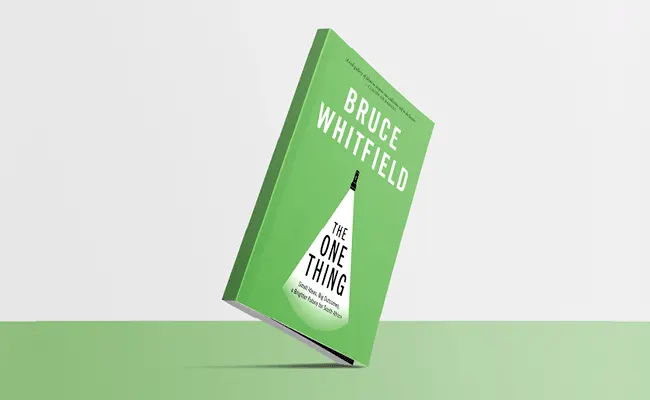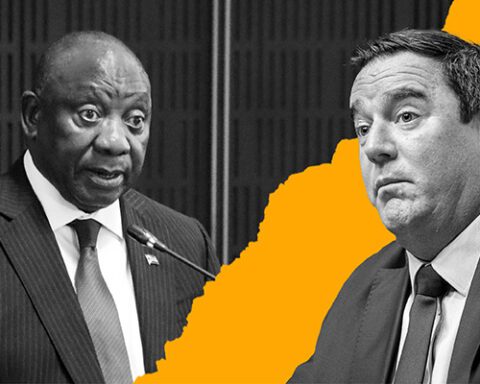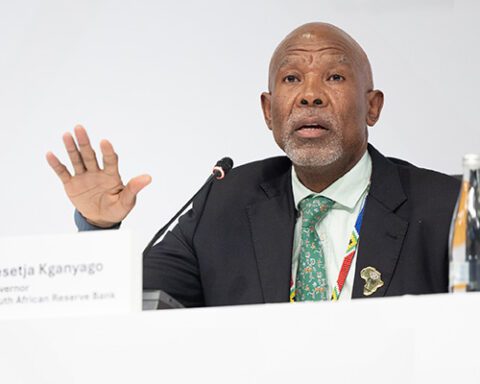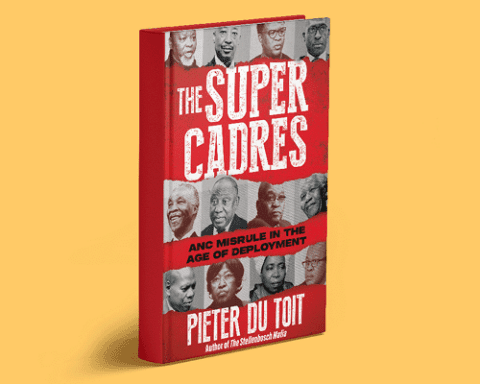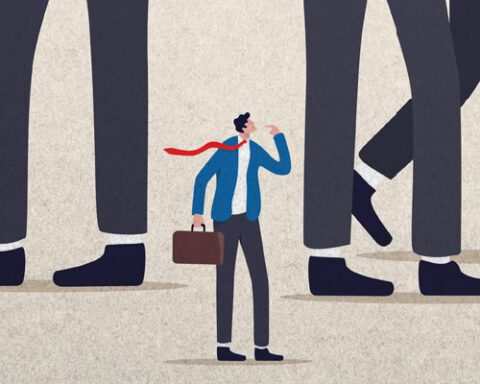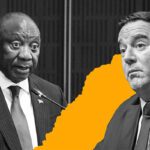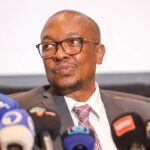Bruce Whitfield rounds up 100 thinkers on what one thing they would do if they were in charge of South Africa, to catalyse change. Former Reserve Bank governor and Nedbank chair Daniel Mminele shares his thoughts …
Daniel Mminele
Daniel understands the power of appropriate policy, having worked at the upper echelons of the South African Reserve Bank, where he was deputy governor for two five-year terms before being appointed CEO of Absa, taking up the role with no prior private sector experience at the start of the global pandemic. Today he is the chair of Nedbank. Here’s what he had to say:
What an intriguing, fascinating and challenging question! Instinctively, given the magnitude of the assignment, I would order that my term be extended immediately to allow me to do justice to the task, but I suspect that the rules of the game would not allow for such autocratic behaviour, even if well-meaning, to provide some time for gathering critical information and data to underpin the quality decisions required.
With the limited time then available, one would be confined to putting measures in place to have the right people in the right places to drive the future work of government regarding both policy-making and implementation.
I would require that an independent evaluation of all ministers be conducted within the first six months, with defined minimum thresholds relative to their portfolios for skills, experience, financial probity and integrity. Those not meeting the standards would need to be urgently replaced with those who do. The same process should be followed for boards and management of SOEs (state-owned entities). As a small and open economy, and to strengthen our economic diplomacy, a similar exercise would need to be undertaken with those that represent South Africa in the capitals and financial centres of our key trading partner nations.
I would require an intensification of our involvement with the rest of the African continent to benefit as a country from the vast opportunities, and to contribute to growth and development on the continent.
I would also appoint an independent commission to make recommendations, within three months, on what steps need to be taken to create an apolitical and professional civil service.
Flowing from the above, to improve effectiveness and efficiency, consolidate cabinet to end up with a maximum of 15 to 20 ministers, each supported by only one deputy.
I would order that all obstacles be removed to allow the criminal justice system to independently and urgently follow up on all Zondo commission recommendations and that the necessary resources be made available in this regard, as well as for fighting crime and corruption generally.
A critical decision would be to order that the National Treasury implement a robust system that will require all new government investment initiatives to be taken through a prioritisation filter to determine their contribution to getting stronger economic growth going again, and to ensure they support a collaborative approach that fully embraces public-private partnerships.
I would ask for a review of regulatory frameworks and administrative burdens in public procurement, without compromising effective governance, to ensure an appropriate level of proportionality to allow SMEs to thrive and contribute to growth and job creation.
I would also require a revamp of our education system to put stronger focus on the quality of basic education as an important foundation for equipping learners with skills that will enable them to compete in an increasingly more complex and fast-changing world that is powered by rapid innovation, while providing the economy with the skills relevant for driving inclusive growth and development.
Given the magnitude of our challenges, a 30-minute president would be well advised to focus on putting in place measures that would be conducive to laying the foundation to allow for accelerated, inclusive and sustainable growth and development. If done properly and responsibly, the rest will follow.
In practical terms, this means reassessing our policies on immigration, capital controls and industry regulations. We need to create pathways for highly skilled individuals to enter and work in our country without unnecessary bureaucratic hurdles. We should facilitate the free movement of capital by modernising our financial regulations to align with global best practices. We must also ensure that our regulatory framework supports, rather than hinders, competition and innovation.
These changes will not be easy, nor will they happen overnight. They will require bold leadership and a willingness to challenge entrenched interests. However, the potential rewards are immense. By opening our economy, we can unlock a new era of growth and prosperity. We can build a nation that is competitive on the global stage, attracting the best and brightest minds and the most substantial investments. We can create an economy that works for everyone, providing opportunities for all citizens to thrive.
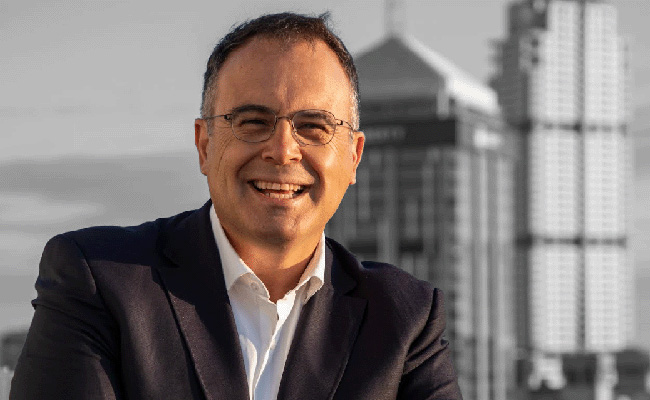
Alan Knott-Craig Jnr
Alan first leapt into the public consciousness in the early days of load-shedding in 2008 with an impassioned letter he wrote to staff, urging them to remain positive in the face of probably the single most economically destructive failure of the Mbeki administration, in addition to the sheer negligence of that administration’s approach to HIV and Aids, which could have been alleviated by the simple and cost-effective administration of anti-retroviral drugs. If he did one thing right, Jacob Zuma should be credited for his proactive approach on this front, which has meant far more adults live productive lives supporting families than would have been the case had Aids denialism persisted. Here’s what he had to say:
If I were president, I would concentrate on one thing: fighting crime by bringing law and order back to our country, and making South Africa safer for everyone, especially women. That would start with just one thing – getting the right people in charge and the rest will follow.
Our country is not a safe place, whether you live in a leafy suburb or a township. And it’s especially not safe if you’re a girl. And that’s just not right. It’s not a fair society that doesn’t protect its people from rape, robbery, murder and general crime. It’s also not a productive economy where people have to look over their shoulders all day. Making South Africa safe for everyone will have ripple effects, not least of which in education and the economy.
Safe streets mean kids can walk to school without looking over their shoulders. It means women can commute to work without fear of attack, and men can take home their wages without fear of being mugged.
It means politicians get arrested for corruption. It even means the lights stay on! Most of Eskom’s woes are due to corruption and theft. Stop the crime and load-shedding will end and the economy can grow. Crack down on crime, and our children will be free to learn, our citizens will be free to earn, and corruption will cease to be a handbrake on our economy.
Crack down on crime and white-collar criminals will go to jail, corrupt politicians will be booted out, and our public and private monies will be spent on infrastructure rather than line the pockets of crooks.
Crack down on crime and the potholes will be fixed and the water-shedding will end and the rubbish will be picked up. Crack down on crime and all South Africans can finally feel safe in their own homes and streets.
The question is how? Of course we must fight social ills like inequality, lack of respect for women and broken homes. Of course we have to grow the economy and create jobs and fix the schools and educate our youngsters to be able to find meaningful work. Without these we can’t have a country free from crime in the long term.
But we need a short-term solution for crime while we implement the long-term stuff. You simply can’t fix the schools in townships if crooks are running amok, harassing children and teachers, extorting protection money and setting a bad example as role models.
We need a short-term solution to crime. It’s simple. Fix the police by putting the right people in charge. Give them the support to fire the wrong people, hire the right people, train our officers, and bring back pride and discipline and respect, both from within and from society.
Our people don’t respect the police any more. That’s not right! To bring back respect the police must earn it. To earn it they need to be whipped into shape. Once they’re doing their jobs properly, crime will fall. Once they realise the police are on it, crooks will think twice about stealing and raping and murder. The South African Police Service can make South Africa safe and a safe South Africa for everyone means more tourism, more South Africans returning, more foreign investment, more jobs, more electricity, more peace of mind, more prosperity for everyone.
Law and order. It’s the starting point of society. It’s the foundation from which all other institutions are built.
* ‘The One Thing: Small Ideas, Big Outcomes, A Brighter Future for South Africa’ by Bruce Whitfield is published by Pan Macmillan and is now available from all leading bookstores at a recommended retail price of R320.
